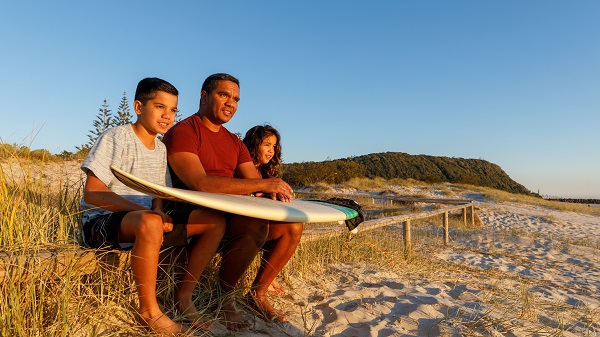Drawing on the strengths of Aboriginal communities to respond to COVID-19
In the days after the black summer bushfires had devastated communities on the Far South Coast of New South Wales, supermarket shelves were bare and medications spoiled in refrigerators without power. In response, the informal networks of the Aboriginal communities within the Yuin Nation kicked into gear, with staff from Aboriginal Community Controlled Services in the Illawarra and Shoalhaven regions delivering food and other necessary supplies to their counterparts on the Far South Coast.

Delivering appropriate, place-based solutions is a strength of the many small, Aboriginal-led organisations that quietly go about the work of servicing the needs of the local community, says Professor Kathleen Clapham, a descendant of the Murrawarri people of north-western New South Wales and director of the Ngarruwan Ngadju research centre at the University of Wollongong.
“These local communities have got good linkages and good communication between each other, and so are able to operate in a different way than government and non-Aboriginal organisations,” she says.
Connection, communication and culture
Clapham and her research partners (funded by the Australian Research Council) have been working with a range of Aboriginal Community Controlled Services (ACCSs) within the Yuin Nation of south-eastern NSW, including the South Coast Medical Aboriginal Corporation, Illawarra Aboriginal Medical Service, Katungul Aboriginal Corporation Regional Health and Community Services, Coomaditchie United Aboriginal Corporation, Illawarra Koori Men’s Support Group, and the Waminda South Coast Women’s Health and Welfare Aboriginal Corporation, to understand how models of Aboriginal leadership and governance can help communities respond to complex health and social issues.
“While the focus of each organisation is different, they create a network of services connected through family and culture,” she explains.
“These organisations have deep cultural knowledge and are often the holders of language. The organisations connect with children, with women, with men and families.”
NSW Health has provided funding to expand the research to include how these organisations are responding to the COVID-19 pandemic. The researchers plan to develop a framework for responding to crises that can be adapted for use in other Aboriginal communities.
The pandemic has forced ACCSs to quickly pivot and adapt to a new set of challenges while many are still deep within the work of helping their communities recover from the bushfires and, even more recently, floods.
In May 2020, a group of government agencies and Aboriginal organisations from the Illawarra, Shoalhaven and Southern regions came together in response to the COVID-19 crisis, to identify where support was needed for Aboriginal communities on the NSW South Coast.
“Some particular concerns were around the social and emotional wellbeing of the Aboriginal community being overlooked by the COVID-19 response groups that were being set up,” says Clapham.
Communities at high risk
As well as responding to the increased clinical and policy demands of the pandemic, the staff of Aboriginal Community Controlled Services carry the emotional burden of dealing each day with the disproportionate risk the virus poses to family members, the local community and, perhaps, to themselves. The high rates of chronic conditions such as diabetes and heart disease suffered by Aboriginal peoples increases the risk of developing severe illness for people who contract the SARS-CoV-2 virus.
Another concern was the stress created in Aboriginal communities when they did not fully understand the nature of the virus and how to prevent its spread because information was not being presented through communication channels that were trusted and culturally safe.
“With the history of trauma, and the history of distrust of government agencies, these are issues that we are going to have to grapple with,” Clapham says.
Social media was an important means of communication between Aboriginal organisations during the bushfires, and the research will focus on which forms of communication and messaging will best support Aboriginal communities throughout the pandemic.
“With both the bushfire crisis and the pandemic, we want to understand not only how Aboriginal communities are vulnerable, but how they can draw on the strengths of what they have in their communities.”
Note: Other collaborators on Professor Clapham’s project include The University of Sydney, University of Newcastle, University of Western Australia, and University of Queensland,
Updated 5 years ago